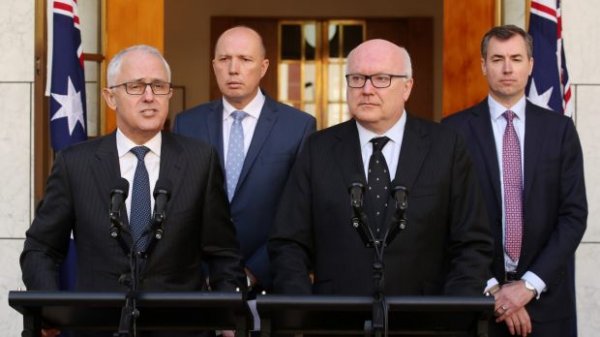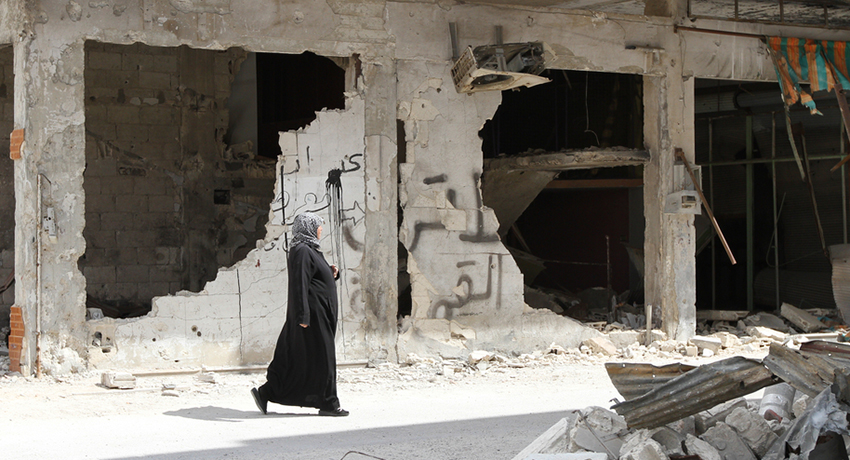Despite an emerging international movement for feminist foreign policies, it’s not often we publicly discuss feminist views of national security. Over the past five years, the Australian Government has been grappling with the implementation of a whole-of-government policy on Women, Peace and Security (WPS).
That policy, the National Action Plan on WPS, is currently due for renewal. But last month, the Australian government announced a major change to Australia’s national security architecture which aligns a range of problematic policy and practice decisions that ignore the views and experiences of women nationally, in the region, and internationally.
Now is the time for a feminist analysis of Australia’s emerging security architecture, including a gendered approach to counter terrorism, dealing with foreign fighters and the new home affairs arrangements including women in immigration detention and gendered police support programs in the pacific.
Now is the time for a feminist analysis of Australia’s emerging security architecture, including a gendered approach to counter terrorism.
Australia’s National Action Plan on WPS was developed to integrate Australia’s obligations under a suite of Security Council resolutions on the topic of WPS. The WPS resolutions recognise that men and women experience conflict differently, and that accounting for women’s experiences of conflict and insecurity is vital to achieving sustainable peace and security.
Most recently, the Security Council passed resolution 2242, calling on member states to better integrate WPS into their strategies for countering violent extremism and counter-terrorism. That resolution also urged member states to “strengthen access to justice for women in conflict and post-conflict situations, including through the prompt investigation, prosecution and punishment of perpetrators of sexual and gender-based violence.”
Gendered war crimes have been the hallmark of Da’esh who have kidnapped women, published entire doctrines on the use of sex slaves, and thrown LGBTQI people off rooftops for their sexuality. Rape has been perpetrated as a war crime and has been so widespread that it constitutes a crime against humanity.
Furthermore, sexual violence has been used as constituent of genocide against the Yazidis. Of the tens of thousands of foreign fighters who fight with Da’esh in Iraq and Syria, many come from countries like Australia that criminalise sexual violence as war crimes, crimes against humanity and genocide.
Gendered war crimes have been the hallmark of Da’esh who have kidnapped women, published entire doctrines on the use of sex slaves, and thrown LGBTQI people off rooftops for their sexuality.
One such fighter is Khaled Sharrouf who was known to have purchased Yazidi women at a slave market, held them captive, and forced them into sexual slavery. However, at the time, rather than meeting Australia’s international obligation to investigate and prosecute him for these crimes, the Minister for Immigration revoked his citizenship, abdicating our obligation for non-recurrence and supporting impunity for conflict related sexual violence. He is since believed to have been killed in a targeted attack in mid-August, near Raqqa in Syria.r crime and has been so widespread that it constitutes a crime against humanity.
Recent updates to data laws in Australia give intelligence and law enforcement agencies an unprecedented volume of information to prevent terrorist activity. However, the system continues to fail to adequately analyse the information at hand.
Dr Anne Aly MP noted that ahead of the Lindt café siege, Man Haron Monis exhibited the three behavioural traits that indicate a serious terrorist threat. Fixation: a pathological preoccupation with a person or cause; identification: a warrior mentality that includes narcissistic fantasies; and leakage: communication either to a third party or to the public of intent to commit violence.
There is a strong correlation between perpetration of domestic violence and modern terrorist activity. Sociological research has shown domestic terrorist groups are now more likely to show behaviours to reassert male dominance. This is a common pattern of behaviour in perpetrators of domestic violence. We know that Man Haron Monis has been charged with the murder of his former wife.
Many other cases exist including one of the London Bridge terrorists abuse of his wife. But the Australian government continues to underfund the domestic violence services that make victims feel safe enough to report their abusers. Similarly, since 2015, the government has spent a mere three percent of its counterterrorism expenditure on the community sector programs that counter or prevent violent extremism.
Since 2015, the government has spent a mere three percent of its counterterrorism expenditure on the community sector programs that counter or prevent violent extremism.
In 2015, the Australian Senate heard that thirty-three asylum seekers alleged they had been raped or sexually assaulted at the immigration detention centre on Nauru. Given the centre on Nauru was only host to a hundred or so women and children, this figure is staggeringly high.
Policy and government responses to the safety, health and wellbeing of refugees and asylum seekers in detention remain inadequate. The most shocking case was the refusal to provide sexual and reproductive health care to a Somali woman who fell pregnant when she was raped in detention.
The head of ASIO recently explained that he saw no relationship between refugees and asylum seekers coming to Australia and incidents of terrorism. But the government has decided to bring the Department of Immigration and Border Protection, which has overseen these gross breaches of women’s security, into a mega Department of Home Affairs designed to ‘improve’ Australia’s security.

Prime Minister Malcolm Turnbull (left) announces the creation of the Department of Home Affairs, to be led by Peter Dutton (second from left).
Meanwhile, the Australian Federal Police (AFP) undertake a range of operations beyond merely securing our borders and counterterrorism. The AFP are a key national tool in supporting the rules-based global order. They participate in UN peacekeeping operations and undertake significant police support programs in the Pacific.
Some of these programs are aimed at improving women’s participation in the police force as well as better responding to and reducing incidence of violence against women. Will these programs be reduced under a new strategic direction based on the concept of a ‘Home Office’?
In short, the merging of departments and agencies into the mega Department of Home Affairs, as well as the ministerial leadership chosen to run the new department, show scant regard for gender justice, women’s rights and the rule of law, and admonishes women’s agency and expertise.
Susan Hutchinson is the Executive Director of Azadi-e Zan, a small NGO that supports Afghan women’s rights defenders. She has been working to improve the implementation of the Women, Peace and Security agenda for more than two decades with military, government and civil society organisations. She is also currently undertaking a PhD in International Relations at the Australian National University’s Coral Bell School of Asia Pacific Affairs.






